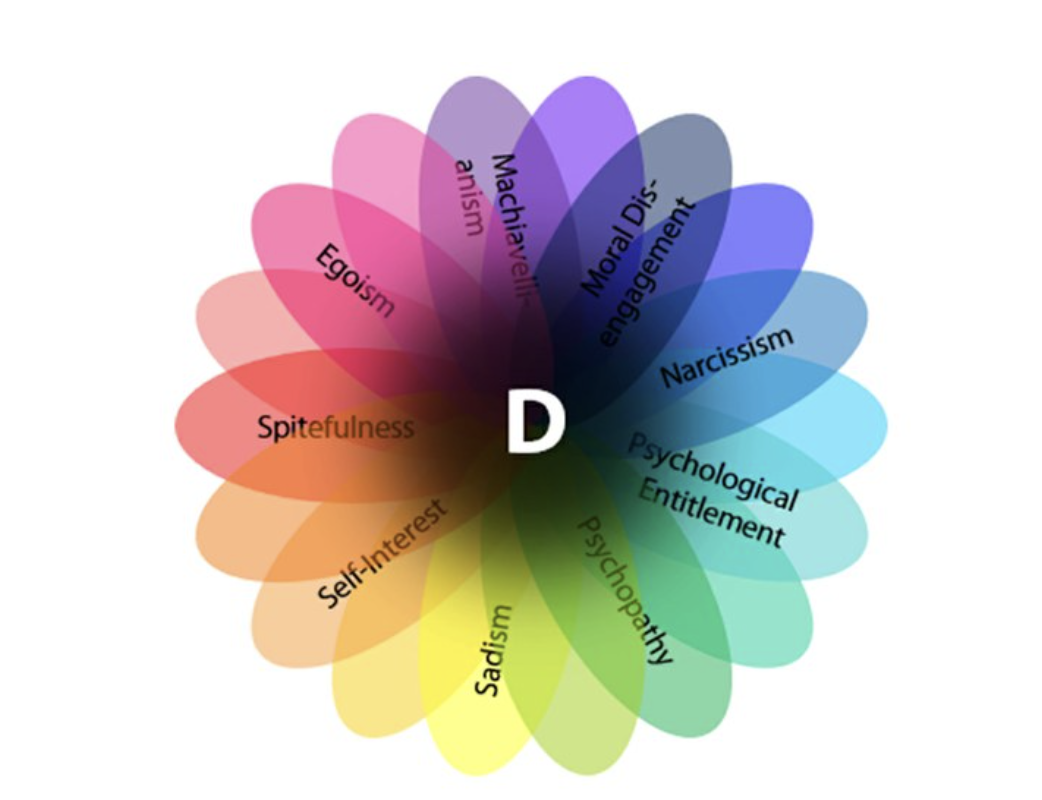INKOVEMA Podcast „Well through time“
#135 – From the human dark triad to the D-factor of personality
The influence of the dark side of a personality in coaching, mediation and other counselling. In conversation with Günther Mohr
Well through time. The podcast about mediation, conflict coaching and organisational consulting.
Günther MohrDiplom-Volkswirt, Diplom-Psychologe, qualified transactional analyst, senior coach DBVC and BDP, supervisor BDP, mediator, scrum master, Zen teacher, author of numerous specialist books
Contents:
The human personality is a complex mix of traits that shape our thinking, emotions and behaviour. While most people strive to cultivate positive traits, there is also a darker side represented by the Dark Triad and the D-factor. These concepts shed light on the less admirable aspects of human nature and have attracted the interest of psychologists and researchers around the world. For mediation, coaching and other counselling, these aspects of the human being are also of great importance and we counsellors should be familiar with the concepts, but above all with our own mix.
The The dark triad consists of three personality traits: Machiavellianism, narcissism and psychopathy. Machiavellianism refers to a manipulative and ruthless attitude towards others, while narcissism describes excessive self-love and a need for admiration. Psychopathy, on the other hand, is characterised by low empathy and impulsive behaviour. Although these characteristics can exist independently of each other, they are often linked and can lead to a destructive combination.


Researchers have developed the D-factor to quantify these dark characteristics. The D-factor stands for the Dark Factor of Personality and serves as a superordinate construct that captures the common variance of the three dark personality traits. In other words, the higher a person's D-factor, the more likely it is that they have a pronounced dark triad.
Researchers at the former University of Landau-Koblenz have attempted to quantify this D-factor – and 9 Features peeled out:
- Selfishness: Egoism describes a strong self-centredness in which a person primarily pursues their own interests and needs and shows less consideration for the interests of others.
- spitefulnessMalice is a hostile, spiteful and aggressive attitude towards other people, often accompanied by a desire to harm others.
- MachiavellianismThis trait is part of the Dark Triad and refers to a manipulative and strategic attitude in which a person exploits others to achieve their own goals.
- Moral DisinhibitionMoral disinhibition refers to the absence or weakening of moral concerns and inhibitions that allow a person to justify or carry out unethical or harmful actions.
- NarcissismAlso part of the Dark Triad, narcissism describes excessive self-love, self-centredness and a strong need for admiration and recognition.
- PsychopathyAnother element of the Dark Triad, psychopathy refers to low empathy, lack of remorse or guilt and impulsive behaviour.
- SadismSadism is the pleasure a person derives from torturing, humiliating or hurting others.
- Self-centrednessSelf-centredness describes a strong focus on the self and one's own interests, often at the expense of others.
- Exaggerated DemandingnessExcessive demandingness refers to a tendency to have excessive expectations of oneself or others and not to be easily satisfied.
If you would like to find out for yourself how strong your own D-factor is, you can do this free of charge using a Online questionnaire which the scientists are making available on the Internet: https://qst.darkfactor.org/
It is important to emphasise that not all of these factors need to be seen as negative or destructive at all times or in every situation. Some measures of self-centredness or demandingness may be appropriate in certain situations or contexts. Nevertheless, some of these traits, particularly when they are taken to extremes, can lead to problematic behaviour or interpersonal difficulties. Research into personality and related factors is a multi-faceted area and it is important to consider the nuances and contexts in order to develop a comprehensive understanding – and make this fruitful for the appropriate counselling setting.
Literature:
- Moshagen, M., Hilbig, B. E., Zettler, I.: The Dark Core of Personality. In: Psychological Review, Vol 125(5), Oct 2018, 656-688; dx.doi.org/10.1037/rev0000111






Leave A Comment